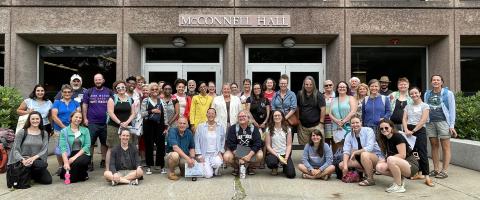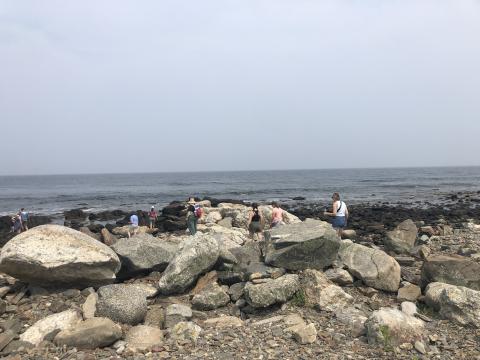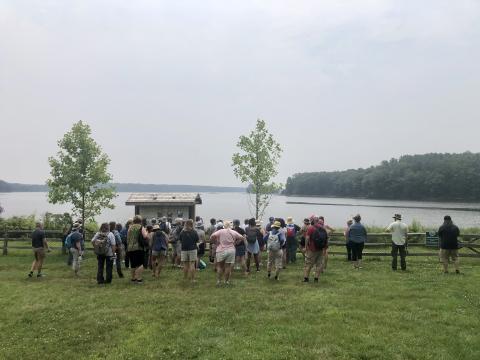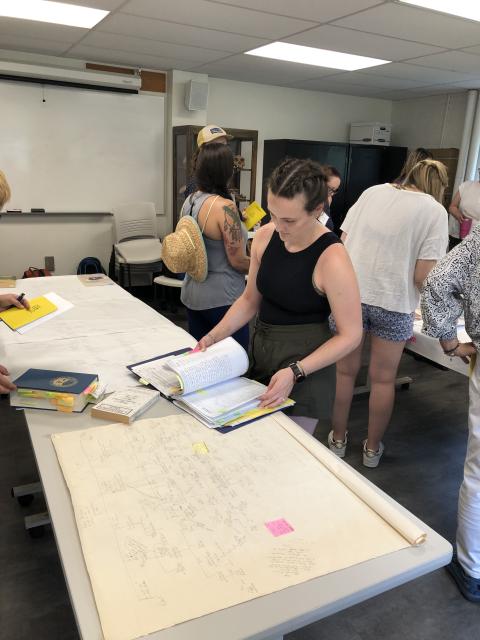
Overview and History of Public Humanities at the Center
Founded in 1986 and directed from 1988 to 2018 by Burt Feintuch, the UNH Center for the Humanities has a long record of commitment to public humanities and a strong history of engagement in the state and region. The Center has sponsored public projects, ranging from publications such as the Encyclopedia of New England (Yale 2005) to documentary films on the recovery of African American history in New Hampshire and recently arrived refugees in the state to an app that brings Abenaki lifeways of the past, present, and future into the world around you as you visit one of our three partner sites: Odiorne State Park, Strawbery Banke Museum, and Star Island.
The Center has continuing relationships with community and regional partners such as the Black Heritage Trail of New Hampshire and the Indigenous New Hampshire Collaborative Collective (INHCC) and was for many years a primary sponsor of the annual Black New England Conference, which brings together academics, community activists, and artists. In 2023, we hosted two cohorts of educators for a series of place-based encounters with global colonialism for a Landmarks of American History and Culture workshop sponsored by the National Endowment for the Humanities. We will again in the summer of 2025.

Many universities have encouraged their faculty to undertake engaged scholarship, partnering with communities and public organizations for mutual benefit. This is especially consonant with the mission of land-grant universities, which were created for the public good. Faculty who do engaged scholarship typically represent areas of the university other than the humanities, fields considered to have applied dimensions. Our public humanities initiative aims to expand the cohort of scholars who practice engaged work.

Our goal is to provide resources for colleagues whose work demonstrates the importance of the humanities for the public good. The humanities have sometimes been critiqued as insular, not able to speak clearly to audiences beyond small disciplinary groups. More broadly, universities are increasingly criticized as remote from public issues, concerns, and priorities.
Our Fellowships in Publicly Engaged Humanities (which we began awarding in 2015) have broadened the participation of UNH humanities
faculty in engaged work, helping the institution reimagine the nature and scope of engaged scholarship. The Fellowships demonstrate the importance and utility of the humanities in public life. One of our Fellows, Professor of Anthropology Eleanor Harrison-Buck, was subsequently awarded a Whiting Public Engagement Fellowship.

In 2018, the Center was awarded a grant from the Mellon Foundation to host three Summer Institutes in Public Humanities. Those took place in 2019, 2021 (online), and 2022. Eligible scholars from the cohort then received seed funding after their participation in the Institute so that they could develop or enrich a public humanities project at their home institution.
Currently our Hayes Fellowships, for faculty projects with a research focus on New Hampshire's history, culture, and government, encourage collaboration with non-academic communities. Much of the supported research by our current cohort of Hayes Fellows is being undertaken in direct collaboration with community partners and members, with a demonstrated benefit to the public, or on digital platforms that will make the research broadly accessible and interactive.
Resources for Public Humanities
For information on engaged scholarship at UNH and on a number of other organizations involved in public humanities projects, these links may be useful.
- UNH Engagement and Academic Outreach
- Humanities for All (National Humanities Alliance)
- National Humanities Alliance Engaged Humanities Story Map
- AACU Publicly Engaged Scholarship and Teaching
- NEH Division of Public Programs
- Imagining America
- The Heyman Center for the Humanities (Columbia University)
- John Nicholas Brown Center for Public Humanities and Cultural Heritage (Brown University)
- Center for the Humanities and the Public Sphere (University of Florida)
- Center for the Humanities (University of Wisconsin – Madison)
- Public Humanities at the Humanities Research Center (Rice University)
- Whiting Humanities
- Bringing Theory to Practice